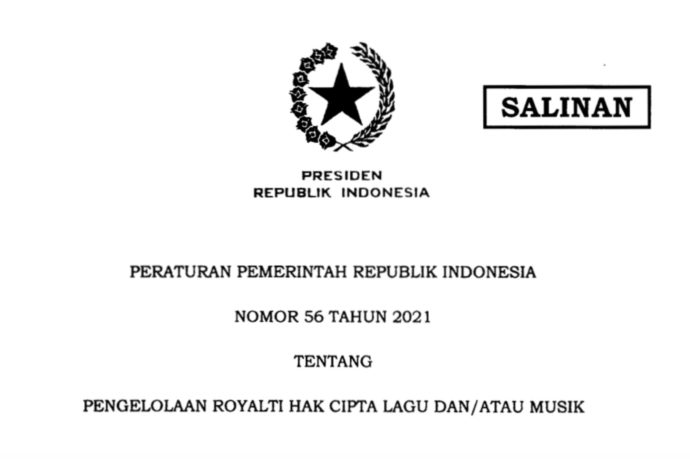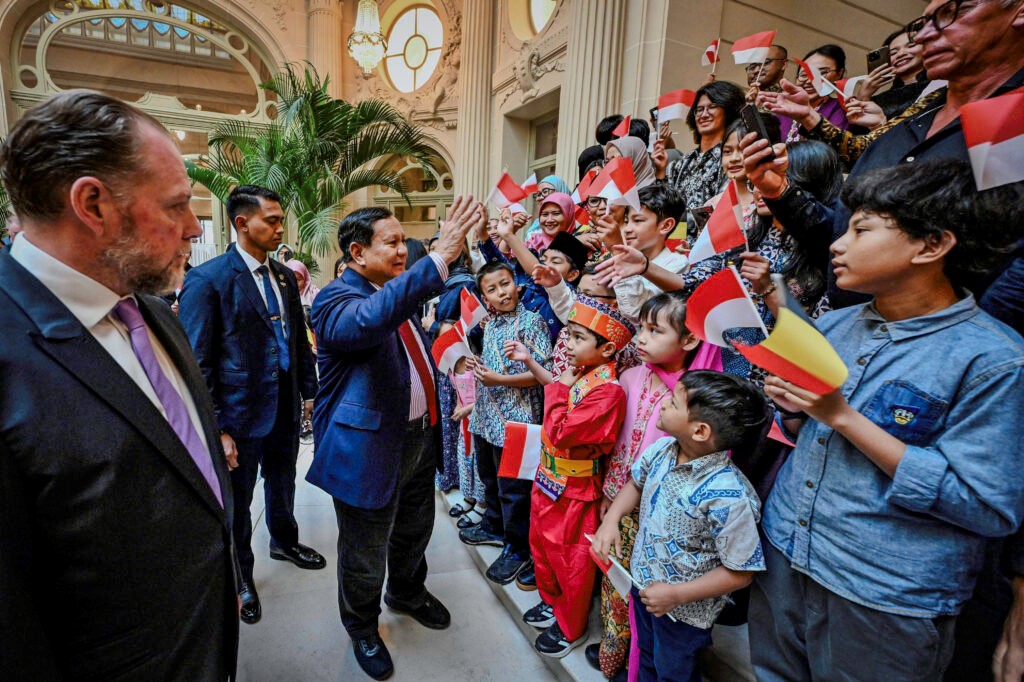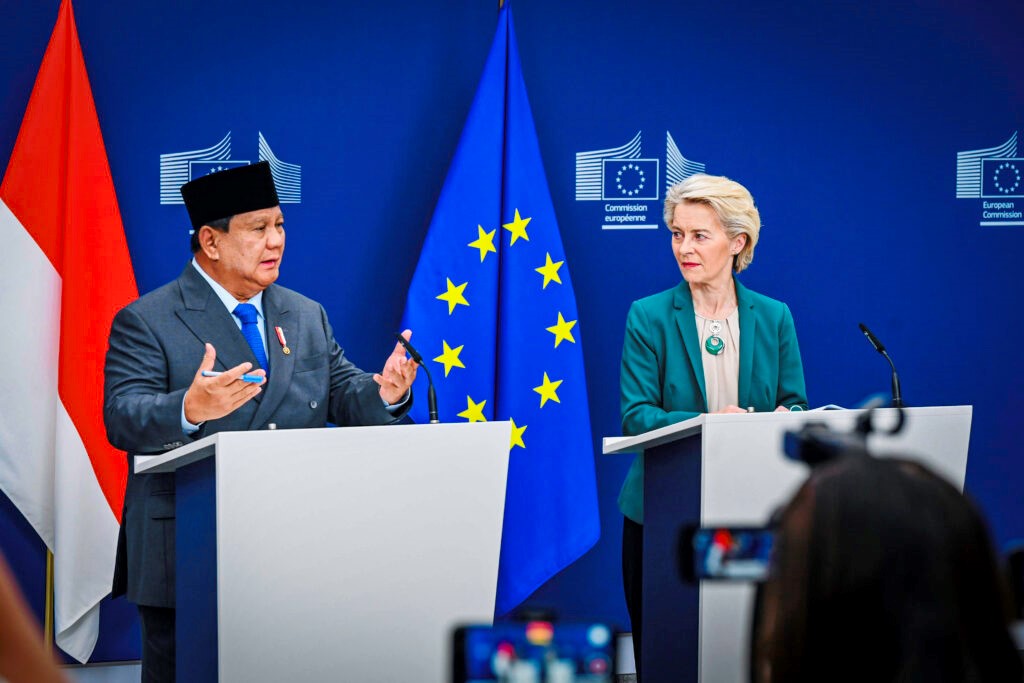Gov’t Issues Regulation on Songs, Music Copyright Royalties Management

President Joko “Jokowi” Widodo on 30 March 2021 signed Government Regulation of the Republic of Indonesia Number 56 of 2021 on Management of Royalties for Songs and/or Music Copyright.
The Regulation, which can be accessed through the Cabinet Secretariat JDIH page, is issued to provide protection and legal certainty for creators, copyright holders, and related rights owners to economic rights of songs and/or music as well as everyone who makes commercial use of songs and/or music.
The Regulation also aims to optimize the management function of copyright royalties for the use of works and related rights products of songs and/or music.
“Everyone may make commercial use of songs and/or music in the form of commercial public services by paying royalties to creators, copyright holders, and/or related rights owners through the LMKN [National Collective Management Agency],” Article 3 paragraph (1) of the Regulation reads.
The LMKN is an institution that has the authority to collect and distribute royalties and manage the economic rights of creators and related rights owners of songs and/or music.
The LMKN is a non-State Budget Government agency established by the minister based on the copyright law. Article 18 of the Regulation states that the LMKN represents the interests of the creator and related rights owner, and it consists of the LMKN of the creator and the LMKN of the related rights owner.
The Regulation stipulates that forms of public service of a commercial nature that must pay royalties include commercial seminars and conferences; restaurants, cafes, pubs, bars, bistros, nightclubs and discotheques; music concert; aircraft, buses, trains and ships; exhibitions and bazaars; cinema; telephone private ring tones; banks and offices; shops; recreation center; television broadcasting institutions; radio broadcasting institutions; hotels, hotel rooms, and hotel facilities; and karaoke businesses.
The addition of commercial public service of a commercial nature is regulated by a ministerial regulation.
The Regulation states that songs and/or music data center contains all songs and/or music that have been registered in a public list of works. The data center contains no less than information about creators, copyright holders, related rights owners, copyrights, and related rights, which may come from e-copyright.
The data center, which is managed by the Directorate General, is updated regularly every three months or anytime if deemed necessary.
The songs and/or music are recorded in a general list of works, and the terms and procedures for recording are carried out in accordance with the provisions of laws and regulations.
The Regulation stipulates that royalty management should be carried out by the LMKN based on the integrated data in the songs and/or music data center. The Minister, the Regulation added, should record the license agreement in accordance with the provisions of laws and regulations. The provision of the license is accompanied by the obligation to provide reports on the use of songs and/or music to the LMKN through the Songs and/or Music Information System (SILM).
The Regulation states that every person who makes commercial use of songs and/or music in the form of commercial public services under the license agreement should pay royalties through the LMKN. The LMKN will collect royalties for creators, copyright holders, and related rights owners.
The Regulation states that the LMK is an institution that is authorized by the creator, copyright holder, and/or related rights owner to manage their economic rights in the forms of collecting and distributing royalties. The LMK should be in the form of a non-profit legal entity.
Article 14 of the Regulation states that royalties that have been collected should be distributed to creators, copyright holders, and related rights owners who have become members of the LMK, used for operational funds, and used for reserve funds.
Royalties are distributed based on reports on the use of songs and/or music data in SILM. The royalties is distributed to creators, copyright holders and related rights owners through the LMK.
“Royalties for creators, copyright holders, and related rights owners who are not known and/or have not been a member of the LMK are saved by the LMKN and should be announced by the LMKN for two years to the creators, copyright holders and related rights owners,” Article 15 paragraph (1) of the Regulation states.
In the event that after the period the creator, copyright holder, and related rights owner are known and/or become members of the LMK, the royalties should be distributed. However, if they are not known and/or not become members, the royalties can be used as a reserve fund.
“In the event of a dispute related to the mismatch in the distribution of the royalties amount, the creator, copyright holder, and related rights owner can propose the settlement to the Director General through mediation,” the Regulation stated.
The Government Regulation states that in implementing royalties management, the LMKN is obliged to conduct financial audits and performance audits carried out by public accountants no less than once a year and the results should be announced to the public.
“When the Government Regulation comes into force, the minister shall develop a data center for songs and/or music and the LMKN shall develop the SILM no later than two years since the Government Regulation is promulgated,” the closing provisions of the Regulation reads.
The Government Regulation comes into force as of the date of its promulgation. The Regulation was promulgated by Minister of Law and Human Rights Yasonna Laoly on 31 March 2021. (FIA/UN) (RI/LW)








